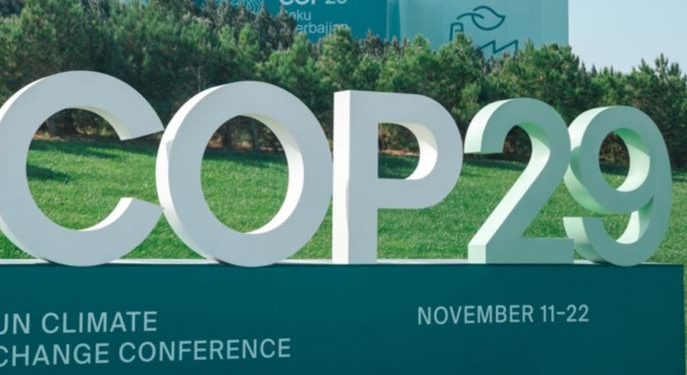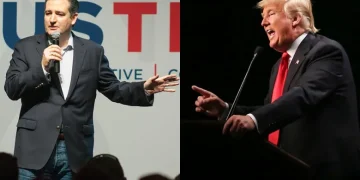New Delhi: In the wee hours of November 24, while most people in India were fast asleep, a drama unfolded at a sprawling conference hall of the Olympic stadium in Azerbaijan’s capital Baku. Diplomats from nearly 200 countries, civil society representatives and journalists had gathered to witness a decision that could determine the fate of climate action in the Global South.
But what transpired was far from routine — it was a moment of diplomatic brinkmanship that left many stunned and India’s delegation fuming.
As the president of this year’s UN climate conference, Mukhtar Babayev, approached the centrepiece agenda item — the New Collective Quantified Goal (NCQG) on climate finance — India’s Deputy Lead Negotiator Neelesh Sah rushed to COP29 Lead Negotiator Yalchin Rafiyev to convey that the country wants to make a statement before the adoption of the contentious decision.
Around 2:30 am, without so much as a pause for objections or comments, Babayev hammered the gavel, declaring the USD 300 billion climate-finance package adopted. The move was so swift, it left delegates from many developing countries blinking in disbelief.
Avantika Goswami, head of the Climate Change Programme at the Centre for Science and Environment, said it happened “quite suddenly and unceremoniously”.
“We were surprised because the last-known figure on the table — USD 300 billion — was far below the latest G77 compromise of USD 500 billion. We also knew that India was preparing to interject in the process. The fact that it was passed before any such objections were raised came as a surprise,” she said.
Journalists witnessing the drama unfold in the plenary room saw the entire Indian delegation leap to their feet, making a timeout gesture. Sah dashed over to Rafiyev, exchanged a few words and returned to his seat, panting.
Meanwhile, Babayev passed the microphone to Cuba for a statement, followed by India, Bolivia, Nigeria and Malawi, who spoke on behalf of a group of 45 least-developed countries. In total, 49 countries objected to the deal. In the UNFCCC process, one objection is enough to block a decision.
However, India had no intention of blocking the deal and its outburst was about more than just the money.
Delivering India’s statement, Chandni Raina, Adviser at the Department of Economic Affairs, described the manner in which the deal was adopted as “unfair” and “stage-managed”.
Raina was scathing about the new climate-finance package, calling the meagre USD 300 billion a year by 2035 “too little and too distant”.
She labelled the sum “abysmally poor”, “paltry” and an “optical illusion” — a far cry from the USD 1 trillion developing countries need every year to cope with the warming world.
Raina flagged three major issues for India in the deal — paragraphs 8a, 8c and 9 of the agreement.
Para 8a: This suggests that the USD 300 billion will come from all sorts of sources — public, private, bilateral, multilateral — and not directly as public money from developed to developing countries. Developing countries have long demanded grants or grant-equivalent funding, not loans that pile on debt. Many poorer nations already spend up to 10 per cent of their GDP on servicing debt.
Paras 8c and 9: These allow developing countries’ contributions — whether through their funding to multilateral climate finance (MDBs) or their own bilateral climate finance — to be voluntarily counted towards the USD 300 billion goal. Essentially, Global South countries might end up footing their own climate bills — hardly the spirit of climate justice.
Raina called it a “deflection” of developed nations’ responsibilities.
Questions have been raised as to why India did not mention these issues at the heads-of-delegation meeting on Saturday or earlier.
To be clear, India had already articulated its concerns throughout the two-week conference.
From high-level dialogues on just transition, pre-2030 ambition, climate finance and adaptation finance to the Mitigation Work Programme and its national statement, India has consistently made its case, aligning with the group of Like-Minded Developing Countries.
A former negotiator familiar with the backroom drama told PTI that India’s 11th-hour objection was not a tantrum — it was a plea for fairness.
India wanted more discussion, especially since the text — with actual numbers — only came out a day before adoption.
“India was shown a figure of USD 300 billion in closed-door meetings on Saturday (November 23), but public documents still listed it as USD 250 billion. Understandably, India was nonplussed,” the former negotiator said.
To make matters worse, the COP29 presidency did not share how other countries had reacted to the USD 300 billion figure. India wanted to raise all these points before the decision was finalised, but the presidency did not give it the chance, the former negotiator explained.
Another former negotiator pointed out that India’s statement in the plenary hinted at its desire for a proper discussion on all these issues.
If India and others had spoken before the decision, it might have delayed the agreement. India’s actions suggest that it was not trying to derail the deal entirely, the negotiator added.
Meanwhile, a civil society member was baffled by how two of the most vulnerable groups to climate change — the Least Developed Countries (LDCs) and the Alliance of Small Island States (AOSIS) — ended up accepting “such a bad deal” after staging a walkout just hours earlier. These groups had demanded USD 220 billion and USD 39 billion respectively from the total finance package.
Most experts PTI spoke to believe that the shadow of the US presidential elections played a big role. “Countries were scared into thinking that next year’s deal would be even worse. They felt cornered into accepting this one,” said the first negotiator.
An observer added that Brazil, set to host COP30, wanted to avoid inheriting a mess, while heavyweights like China and Saudi Arabia were busy safeguarding their interests — they did not want to be officially recognised as climate-finance contributors.
As the world turns its focus to the next climate summit in Brazil, one question lingers — can meaningful progress be made if such critical decisions are seen as skewed against those most vulnerable to climate change?
PTI






































